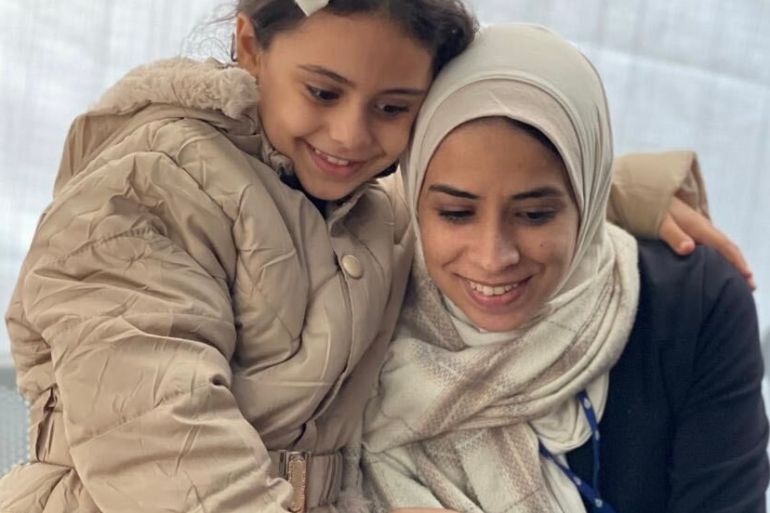‘Bombing everywhere’: As Israel renews war, my eight-year-old has questions
My daughter asks me if the war is on again. I tell her it never stopped. Our lives, dreams and hopes don’t matter to the world.

Deir el-Balah, Gaza Strip — After a week-long temporary truce, the Israeli air strikes have unfortunately resumed.
The past seven days of relative calm have come to an end, and the familiar sounds of bombings, explosions, aircraft, artillery, naval boats and live ammunition are back.
Keep reading
list of 4 itemsIsrael rejects South Africa’s ICJ plea for Rafah attack halt
As Israel attacked Gaza’s north, 26 members of his family were wiped out
What is Trident, the US floating pier off Gaza? Will it work?
These were our daily experiences for seven weeks before the truce, and we had become adept at distinguishing between them, including the distinctive sounds of rockets from Gaza and Israeli bombings.
This morning, at 7:00 sharp, the violent sounds resumed from land, air and sea, evoking new memories of sadness on my family’s faces.
My brother, opening the window to see what was happening, remarked, “Bombing is from everywhere.”
The toughest question came from my eight-year-old daughter, Banias, asking if this was war again. My husband explained that the past “calm” days were just a temporary truce, and the war had not ended.
Banias struggled to comprehend this strange cycle of war, pause, and then war again.
Reflecting on Banias’s confusion, I wondered how a young mind grapples with the illogical nature of war—pauses followed by resumptions.
Fifty-six days of conflict were apparently insufficient to secure a ceasefire.
Yesterday, displaced people living in tents amid dire conditions near Al-Aqsa Martyrs Hospital in the central Gaza Strip expressed distress, fear and despair, desiring not a temporary truce but a lasting ceasefire to return to their homes, even if damaged.
Their fear – that a new resumption of war would mean that Israel would move to bomb the south. Early today, their expectations came true as Israeli troops threw leaflets asking people living in east Khan Younis to move to Rafah at the southern edge of Gaza.
As air strikes persist from north to south, I ponder the multitude of wars faced by the people of Gaza: displacement, destruction, humiliation, tent living, thirst, hunger and the anxiety of temporary pauses followed by renewed bombing.
What should the people of Gaza do to make the world feel for them? How can the world allow the genocide to continue again? How will we return to the bloodshed again and worry about the loss of our loved ones? How, how and how?
I know that these questions will remain unanswered. The past 56 days have taught me, as they have shown to all of the people of Gaza, that our fears, lives, pain, hopes and dreams are not included in the calculations of this world.